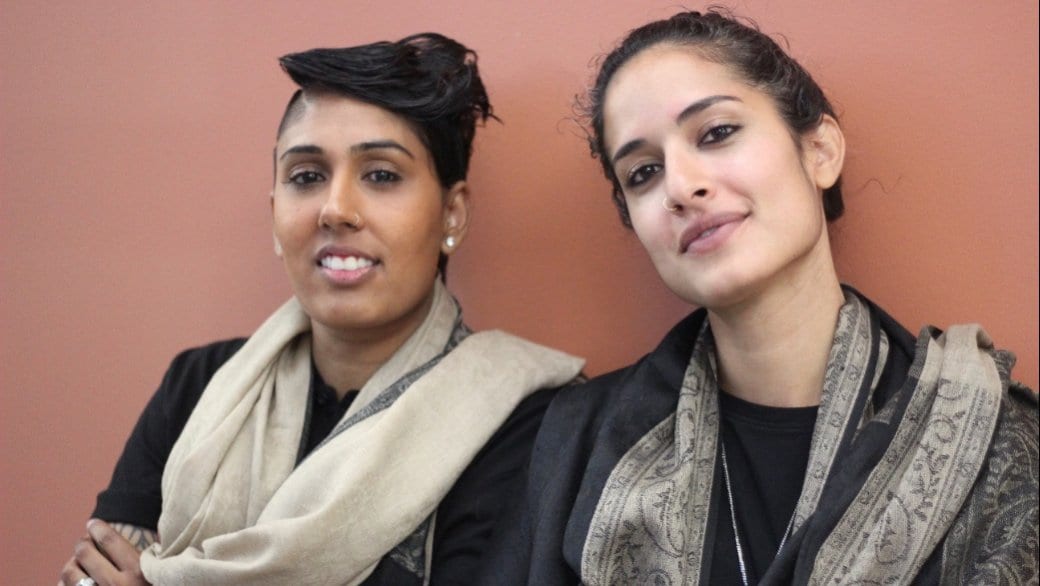“I think every DJ starts by being at a party and thinking, ‘I could do better than this DJ,’” Los Angeles-based producer Maieli says with a laugh.
“It’s always been a way to express myself and express my duality, because I mix all those things together. I mix Indian music and Latin music and hip hop, and things that are American, because that’s who I am.”
For her part, musician MTooray, who also calls Los Angeles home, feels powerful when she plays the dhol. While she is proud to be the only American female player of the double-headed drum, she wants to see other women take it up too.
“Being able to provide a beat and see people move to my beat, that’s a movement to me,” she says. “They’re expressing their happiness; it’s like a call and response. I like that, I love it.”
(MTooray performed in Portland, Oregon in December 2015./The Waackers/Youtube)
To shed light on what it is like to be queer in the Indian music industry, the City of Bhangra Festival invited Maieli and MTooray to host a workshop as part of Bhangra: SHE, a series of events that focus on women’s experiences in this musical genre.
Breaking away from tradition is extremely difficult, Maieli notes. “In our culture there’s such an emphasis on tradition and women’s role within society, which is essentially to get married and have kids. There’s nothing wrong with that, but it’s not the path for every woman,” she says.
(Listen to Maieli and MTooray’s new mix here.)
Maieli, who was taught to play the piano as a child, remembers she was 14 when she began making house and techno beats, and has been a professional deejay for five years.
Being a queer South Asian musician is a unique experience, she observes.
While in university, Maieli studied Anthropology, focusing her research on queer women in South Asian communities. She says she realized at this time the importance of being vocally queer as a South Asian artist.
“I just didn’t feel that it was right that I was standing up, speaking about it, and yet I wasn’t speaking about myself and I wasn’t representing myself,” she says. “I think it’s important to see that representation in the media. If you’re not seeing that, it’s kind of a lone journey that you’re taking.”
She says that this type of representation will inspire future generations of queer South Asian artists.
MTooray was also 14 when she ventured out on her own musical journey with her brother. She recalls the many nights of practice in the family garage which the duo tried to transform into a club complete with disco lights — much to their mother’s chagrin.
MTooray also appreciates the importance of being visible and providing inspiration.
“Inspiring people is always amazing but it’s also scary because there’s no right or wrong, and you don’t want to tell somebody what to do,” she says.
She notes that it’s important to respect queer South Asian people who do not want to be out, but to offer support to those who do.
MTooray points to music as the one thing that forges unity regardless of sexuality or race.
During the workshop, both artists took a moment to honour the victims of the Orlando shooting, recognizing that the tragedy occurred in a nightclub – the kind of space in which they both often perform. Workshop attendees also participated in a group photo to show their support.

(Group photo taken at Vancouver’s City of Bhangra Festival, June 16, 2016, in solidaity with everyone hurt by the Orlando shooting./Layla Cameron/Daily Xtra)
Maieli and MTooray perform
Friday, June 17, 10pm
Fortune Sound Club, 147 E Pender St (at Main)
Saturday, June 18, 7:30pm
Vancouver Art Gallery Plaza
City of Bhangra Festival 2016


 Why you can trust Xtra
Why you can trust Xtra


